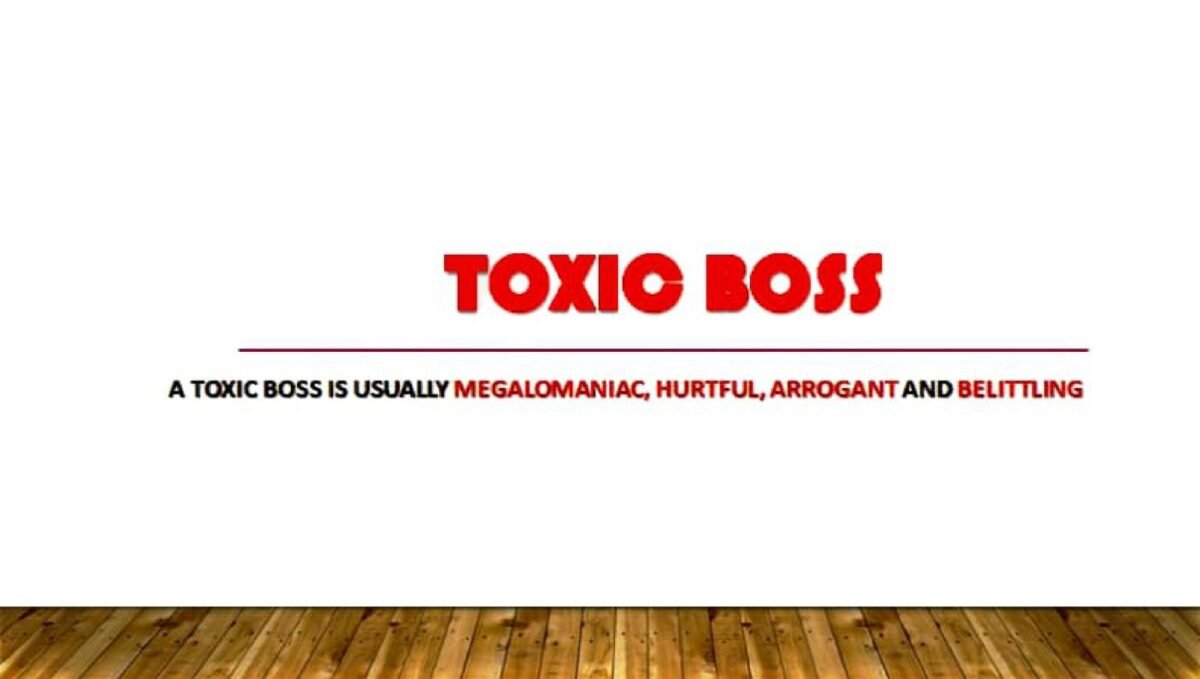While there are no exact telling signs or no ground rules that tell us whether our boss is toxic or not, a toxic boss is usually megalomaniac, hurtful, arrogant, and belittling. A toxic boss doesn’t respect his/her employees and often overburdens them and lacks empathy toward them. Psychologists consider it the big reason for stress.
For example, when an employee is sick and unwell and asks the boss for leave, a good leader or boss would tell the employee to rest well and take care whereas, in the same situation, a toxic boss would likely taunt and snarkily ask to get your act together and complete the work before going on leave.
A toxic boss is more likely to be surrounded by yes-men instead of a team. He/She prefers everyone hailing him/her and is borderline friendly with only those who agree with him/her, even if it means bending the rules or working extra.
Toxic bosses are not as rare as we would like them to be. A report from Labour Economics shows that around 13% of all employees in Europe work under a toxic boss. According to a Gallup study, around 75% of the employees left their jobs not because of the jobs but because of their bosses.
A Swedish study shows that working in toxic environments increases the chances of cardiac arrest by 50% due to the increased job strain.
While we might resist the temptation to call the boss out for the tantrums thrown and their overall toxicity for the sake of the job we so desperately need, it is important to understand how toxic bosses not only ruin your mood in the short run but also affect the quality of our performances and our professional behavior in the long run.
Having demeaning experiences with the authority figure reduces our motivation and dedication toward the company or the firm we work at and adversely impacts our self-esteem and leads to low self-belief and a reduced sense of self-worth. The employee who is at the receiving end thus finds it difficult to perform well, even if they decide to change their jobs.
Best Psychologists in west delhi believe, Having a toxic boss who is always condescending and mean to us subconsciously sends us signals and nonverbal messages that make us question our performance and thoughts and ideas (am I really a nimble-witted bimbo who asks too many questions?). Hardly ever, do we confront the situation for what it is, a boss being toxic (not a nimble-witted bimbo, just an inquisitive, curious, and pedantic learner!).
With a toxic person in authority, the entire work environment feels negative, and disparaging the employees sort of becomes a norm, says best psychologists in delhi.
Micromanaging your tasks and condescending smirks are some other characteristics of a toxic boss. When you have to complete a task only the way your boss has told you and exploring your own way to finish it would be no less than a deplorable sin, you know you are in the wrong hands.
A toxic boss would never appreciate you taking credit for the wins or accomplishments but would want you to be “responsible enough” to take the fall even if it isn’t your fault. While a good boss will take constructive criticism gracefully and try to internalize it and make attempts to improve their own performance and consequently the establishment’s, a toxic boss will be incapable of advice from juniors (forget any constructive criticism) and will make sure to place reminders of the hierarchy as ways to inflate themselves in moments of falls and failures.
With the amount of time we spend at work, it is almost impossible to say that our work environment doesn’t affect our personal life and mental health. A safe and flourishing working environment is very important for the overall growth and development of the individual as well as the firm. This is the reason why stress and anxiety issues are growing in corporates say psychologists in west delhi.
Hence, we must choose our workplace wisely as Nora Denzel had rightly said, “Having a bad boss is not your fault, staying with one is”.
Read more:
How Rapidly Phone Addiction Is Increasing – Did You Notice?
Why Conduct Of Life Should Be Virtuous

